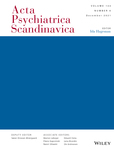The community treatment order (CTO) is designed to deliver mental healthcare in the community and has been introduced in around 75 jurisdictions worldwide. It constitutes a legal obligation in which individuals with severe mental illness must adhere to out-of-hospital treatment plans. Despite intense criticism and the debated nature of published evidence, it has emerged as a clinical and policy response to frequent hospital readmissions and to enhance adherence in cases where there is refusal of pharmacological treatments. This systematic review outlines findings on CTO long-term adherence, after mandatory outpatient treatment has ended, in studies that include people with psychiatric disorders.
Following PRISMA guidelines, we performed a review of published articles from PubMed, PsycINFO, EMBASE, and CINAHL up to January 15, 2023. We included studies that assessed adherence after CTO ends. The study is registered with PROSPERO number CRD42022360879.
Six independent studies analyzing the main indicators of long adherence: engagement with services and medication adherence, were included. The average methodological quality of the studies included is fair. Long-term adherence was assessed over a period ranging from 11 to 28 months. Only two studies reported a statistically significant improvement. Regarding the remaining studies, no positive correlation was observed, except for certain subgroup samples, while in one study, medication adherence decreased.
Scientific evidence supporting the hypothesis that CTO has a positive role on long-term adherence post-obligation is currently not sufficient. Given the importance of modern recovery-oriented approaches and the coercive nature of compulsory outpatient treatment, it is necessary that future studies ensure the role of CTO in effectively promoting adherence.


